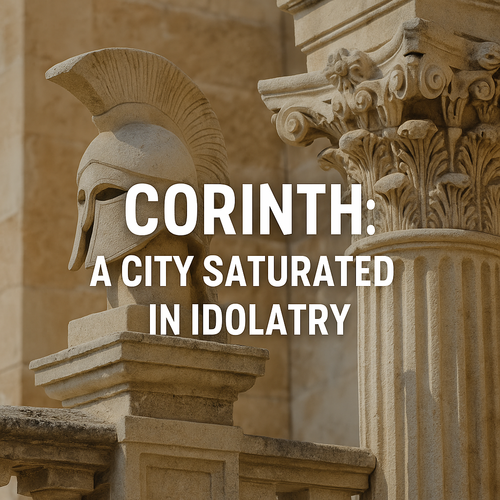More Than a Sunday Message
On Sunday, we explored a truth that challenges both ancient Corinth and our modern hearts: In Christ, we have real freedom — but love often calls us to limit that freedom for the sake of others. This is what I call a “messy liberty” — where what is biblically permissible can still be relationally harmful.
Today, I want to take you deeper into the world of Corinth, into the flow of Paul’s argument, and into the cultural parallels that shape how we apply this in 2025.

To really understand 1 Corinthians 8–10, you have to picture Corinth in Paul’s day:
This is why the Corinthians were debating: If idols aren’t real, what’s the harm?
- Religious Overlap: Temples to Apollo, Aphrodite, and dozens of lesser-known gods dominated the skyline. Religion wasn’t separate from life — it was life. Business deals, political meetings, weddings, and funerals often happened in temple banquet halls.
- Meat Market Reality: After an animal was sacrificed to an idol, the leftover meat was sold in the market. Buying meat often meant buying what had been part of idol worship.
- Social Pressure: Refusing to attend temple events could damage your reputation, your income, and your relationships. For some Christians, the easiest option was to attend and “just not mean it.”
This is why the Corinthians were debating: If idols aren’t real, what’s the harm?
Paul’s Brilliant Response
Paul actually agrees with the theological point — idols are nothing (8:4–6). But he pushes the conversation beyond what is “right” into what is “loving.”
- Not Everyone Knows This: Some believers were fresh out of idol worship. Eating that meat would feel like worshiping their old gods.
- The Ripple Effect: Your freedom could become their downfall if it caused them to act against their conscience (8:7–12).
- Paul’s Personal Standard: He’d rather never eat meat again than cause a brother or sister to stumble (8:13).
Modern Parallels: Messy Liberties Today
We don’t face meat-offered-to-idols decisions, but our world is full of similar gray areas:
The principle still stands: Just because I can, doesn’t always mean I should. Every choice we make leaves a ripple — influencing how others see Christ in us.
- What we post on social media.
- Our entertainment choices.
- The language we use in humor.
- How we speak about politics in mixed company.
- The way we express style or wealth in a community with different backgrounds.
The principle still stands: Just because I can, doesn’t always mean I should. Every choice we make leaves a ripple — influencing how others see Christ in us.
"Just because I can doesn’t always mean I should."
The Deeper Layers in Chapters 9 & 10
Paul doesn’t stop at meat. He shares how he limits his freedoms in other areas (9:19–23) to reach people for Christ. He disciplines himself like an athlete (9:24–27) to avoid being disqualified.
In chapter 10, Paul frames the whole discussion with this principle:
“Everything is permissible, but not everything is beneficial… Let no one seek his own good, but the good of others” (10:23–24).
Paul’s closing thought in 10:31–33 is the north star for all messy liberties:
In chapter 10, Paul frames the whole discussion with this principle:
“Everything is permissible, but not everything is beneficial… Let no one seek his own good, but the good of others” (10:23–24).
Paul’s closing thought in 10:31–33 is the north star for all messy liberties:
- Do everything for God’s glory.
- Avoid causing anyone to stumble.
- Seek the good of many so they may be saved.
A Truth We Didn’t Have Time For Sunday
Here’s a layer we couldn’t unpack fully in the sermon: In Corinth, public life was built on honor and shame. A believer who refused meat or a temple gathering risked being mocked, excluded, or even losing business. Choosing love over liberty wasn’t just inconvenient — it could cost you socially and financially. That’s why Paul’s teaching was radical. It said, “I will absorb the loss if it means you can keep your faith intact.”
Why This Still Matters Today
We live in a self-branded age where personal expression is king. “Be true to yourself” is the mantra. But the gospel calls us to be true to Christ, even when that means letting go of something we have every “right” to enjoy.
Messy liberties force us to ask:
Messy liberties force us to ask:
- Am I more concerned about my freedom or my brother’s faith?
- Will my choice make the gospel more attractive or more confusing?
Reflection Questions
- What is one personal freedom I could limit for the sake of someone else’s growth?
- Who in my life is watching how I live my faith — and how could my actions affect them?
- How does my decision-making process change when I run it through the grid of Purpose, Example, Alignment?
The kingdom of God advances when love trumps liberty. This week, don’t just ask, “What can I do?” Ask, “What can I lay down so others can see Jesus more clearly?” That’s the messy — and beautiful — way of Christ.
Posted in Life Application
